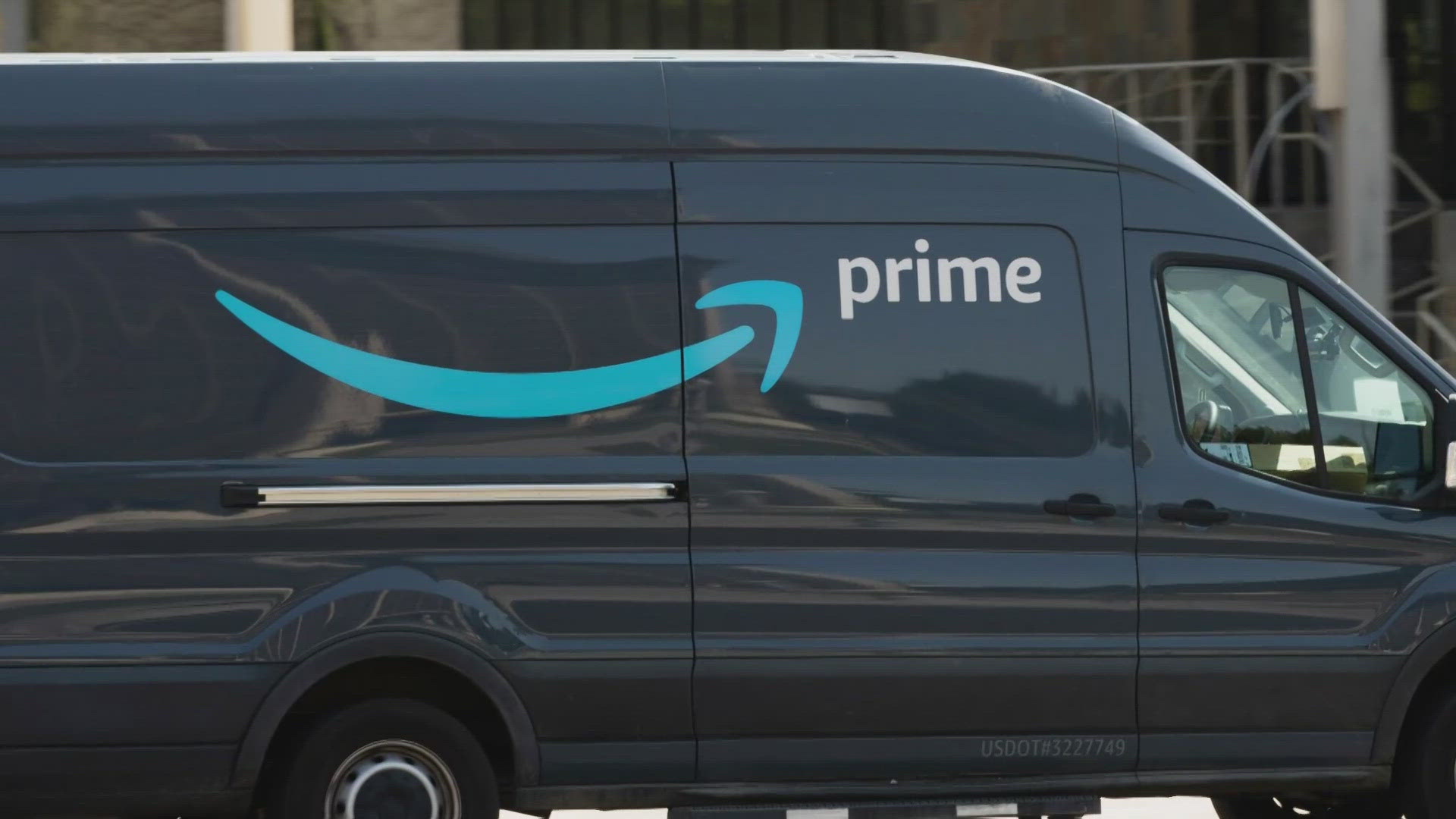WASHINGTON — Sehree Mickel is proud of her DC home, adorned with a holiday wreath and welcome sign with painted dog paws.
Her community lies east of the Anacostia River in the 20019. But she says retail giant Amazon doesn't treat her and her neighbors as equal citizens.
"I don’t think Amazon sees this neighborhood as one that is a priority," Mickel said, sitting on her front porch. "I feel like it’s a majority Black community and it’s not actually getting the services you get on the other side of the river.”
Despite paying full price for Amazon Prime, Attorney General Brian Schwalb says some members in D.C. who live east of the Anacostia River have secretly been excluded from the membership’s promised expedited delivery.
Now, D.C. is suing the retail giant.
But Amazon says the claims are "categorically false."
For many, the allure of an Amazon Prime membership is the expedited delivery. Amazon consistently and prominently advertises Prime delivery speeds as fast as two days, one day and even the same day, according to the suit.
But 48,000 Prime customers who live in D.C. zip codes 20019 and 20020 may have unknowingly not been eligible for those speeds since 2022 when the company reportedly decided to stop using its own trucks to deliver there. Amazon calls it a delivery exclusion, an area where it decides to use third-party delivery services such as UPS and USPS.
The decision was made, Amazon spokesperson Kelly Nantel said, because there had been "specific and targeted attacks against drivers delivering Amazon packages" in those two zip codes. According to another company source, this isn't unique to D.C. and the company has done this in other places, though it's not clear where.
"We're constantly reviewing data and conditions relating to safety, the weather, volume, speed, and more all in the best interest of our customers, employees, and those who deliver on our behalf, and making changes accordingly as these variables change," the source told WUSA9.
In 2023, after the decision, only around 25% of packages mailed to those zip codes were delivered within two days of ordering, compared to more than 70% District-wide, the Office of the Attorney General found. Prior to the decision, in 2021, the OAG says more than 72% of packages were delivered within two days to those two zip codes, in line with just under 70% District-wide that year.
The lawsuit alleges that Amazon knew that the delivery exclusion would lead to significantly slower delivery to those zip codes. And yet, it did not disclose the exclusion to current or prospective members in those zip codes — despite being legally required to disclose any adverse impacts on the quality of a service caused by an operational change.
And the OAG also alleges that when members complained about the slow shipping times to Amazon, company representatives would tell them that slow delivery was “never on purpose” or imply it was a one-time delay out of the company’s control.
“Amazon is charging tens of thousands of hard-working Ward 7 and 8 residents for an expedited delivery service it promises but does not provide. While Amazon has every right to make operational changes, it cannot covertly decide that a dollar in one zip code is worth less than a dollar in another,” Schwalb said in a press release. “We’re suing to stop this deceptive conduct and make sure District residents get what they’re paying for.”
The lawsuit alleges that Amazon has violated D.C.’s Consumer Protection Procedures Act by misleading consumers about shipping speeds and account benefits, as well as by deceiving consumers about the cause of the shipping delays.
Amazon says it has not engaged in any discriminatory or deceptive business practices.
"We’re always transparent with customers during the shopping journey and checkout process about when, exactly, they can expect their orders to arrive. What we’d like to do, and have offered, is to work together with the Attorney General and their office in an effort to reduce crime and improve safety in these areas," Nantel said. "Nevertheless, we will proceed in the process and demonstrate that providing fast and accurate delivery times and prioritizing the safety of customers and delivery partners are not mutually exclusive."
The lawsuit seeks to stop what the OAG says are unfair and deceptive practices and to obtain restitution and damages for affected Prime members.
“Redlining. Commercial redlining," said Mickel, who filed the original complaint with the DC AG's office on behalf of her and her neighbors. "That’s what they are doing, discriminating.”

